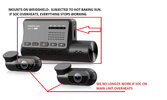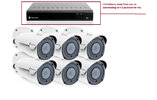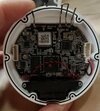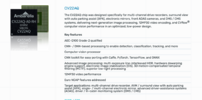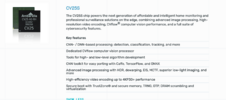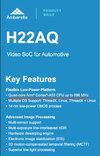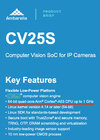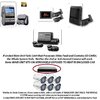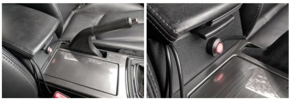Dashmellow
Well-Known Member
- Joined
- Sep 22, 2013
- Messages
- 18,813
- Reaction score
- 19,419
- Location
- Uncanny Valley (●_●)
- Country
- United States
- Dash Cam
- Umpteen
You made a point about absolute reliability. Now you back peddle. It is what it is.
Except this statement is without merit. Which is why I addressed it in the manner I did.
The "DVR" are the brains / central unit. You cannot have a Camera without the DVR in a CCTV system. Simply buying a $200 camera for a CCTV system and using it as a comparison is nonsense. A CCTV "DVR" is not placed outside and subjected to the rigors (heat) that Dash Cam's face baking in the sun.
Second, it's not the individual camera itself overheating, but the "DVR" failing on a Dash Camera. Since Dash Cameras often integrate the DVR into the unit mounted on the windshield. The individual Cameras are "FINE". Just like in a CCTV system.
So basically you fail at two points:
1. Hermetically sealed individual cameras are not achieving the same levels of heat on an individual basis as a Dash Camera Mounted on a Hot Windshield in an enclosed vehicle.
2. Similar to a CCTV system, the individual cameras are not at fault. It's not like on a 3 Channel System, I am losing one the rear Camera and the Interior and Front work fine. What happens on a Dash Cam is the Main DVR (also subjected to the same extreme heat), causes the entire setup to eventually fail.
Zenfox T3 tried to mitigate this by having the interior camera disable when the Main Unit (Front + interior integrated into one body) overheated. With Front + Rear recording. However, the camera itself would overheat as disabling the Interior was a Temporary Stop Gap. At some point, the unit simply got to hot and everything ceased to work.
You are still at it! Unbelievable!
The DVR is merely the recording medium, and perhaps the "menu" but not the "brains". In a dash camera the equivalent is the memory card with the menu controlled locally. The SoC chip-sets within the cameras (the brains) are essentially the same in both dash cams and CCTV cams only with different firmware.

